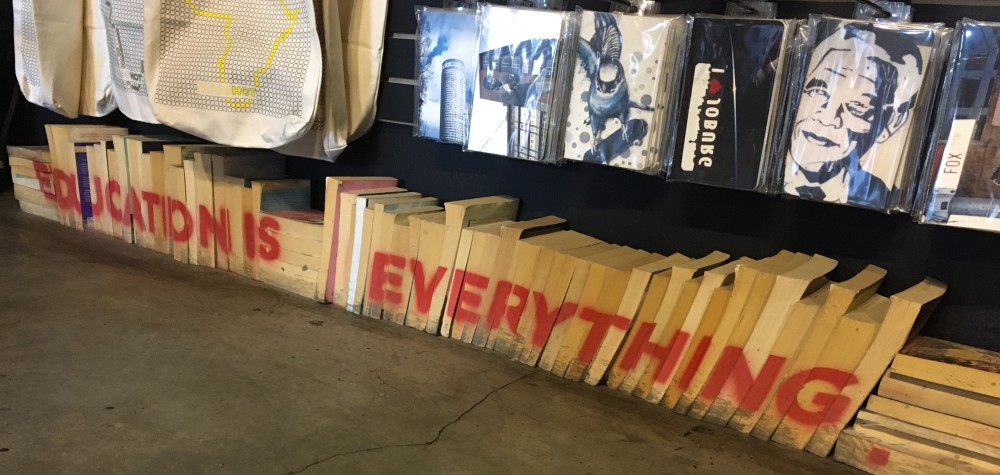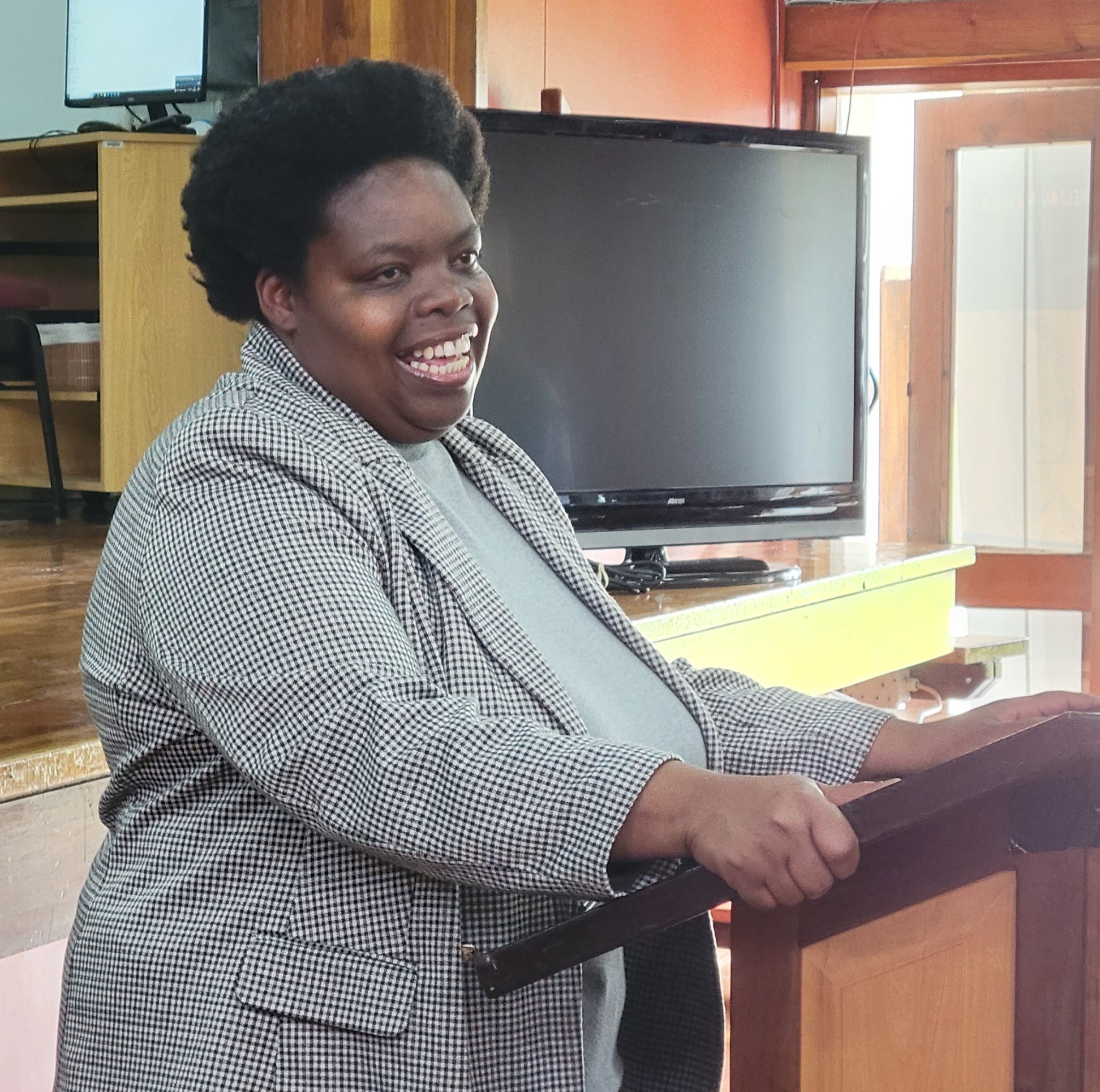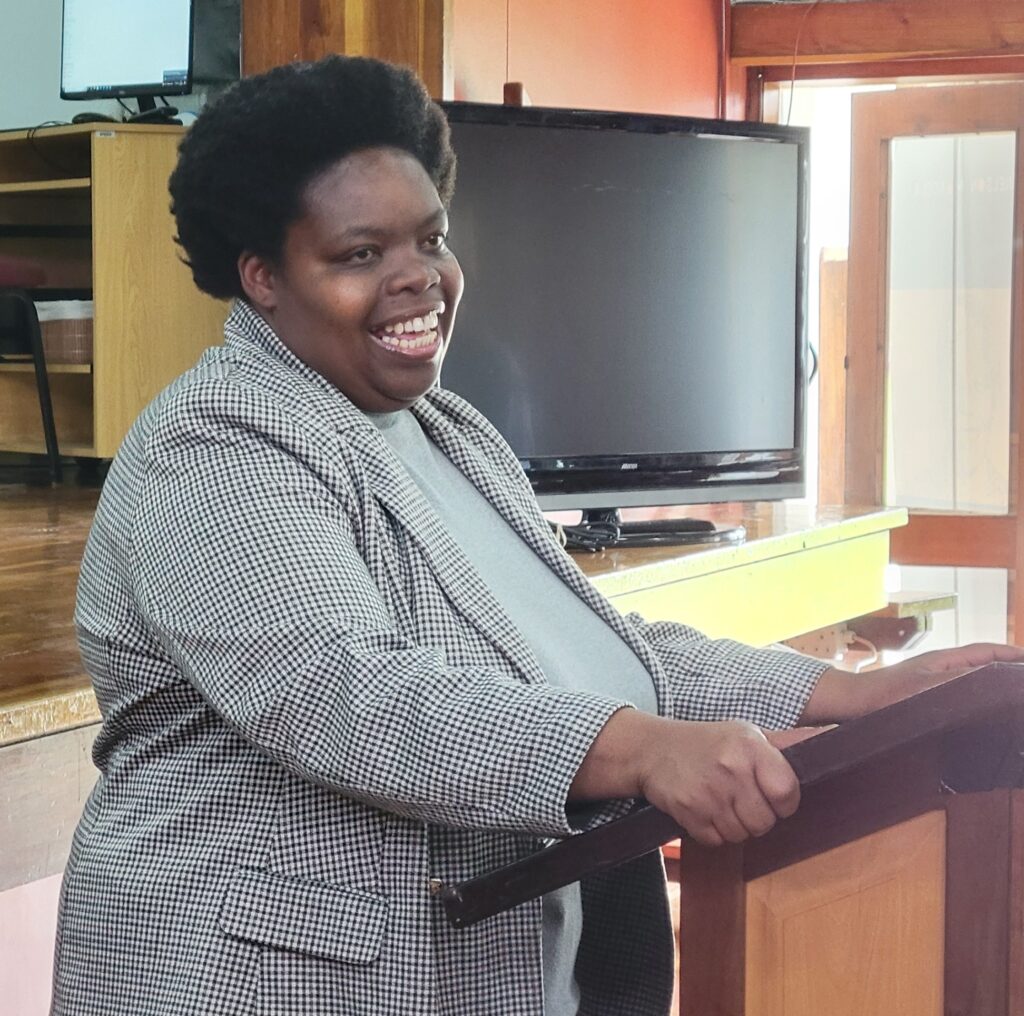
Nelson Mandela University @ George
On May 20, 2024, we visited the George Campus of Nelson Mandela University, a beautiful campus surrounded by the Outeniqua Mountains. We were immediately greeted by the cutest baboons roaming freely around the campus. Once we exited the van and realized they could easily snatch our food and phones, the baboons suddenly did not look as cute! Our visit coincided with Mandela University’s Engagement and Transformation Portfolio programming, which engaged leaders from the different Mandela University Campuses in conversations about the various initiatives, programs, and projects supporting George’s Campus engagement and transformation agenda. Student leaders from NMU George also joined us throughout the day.
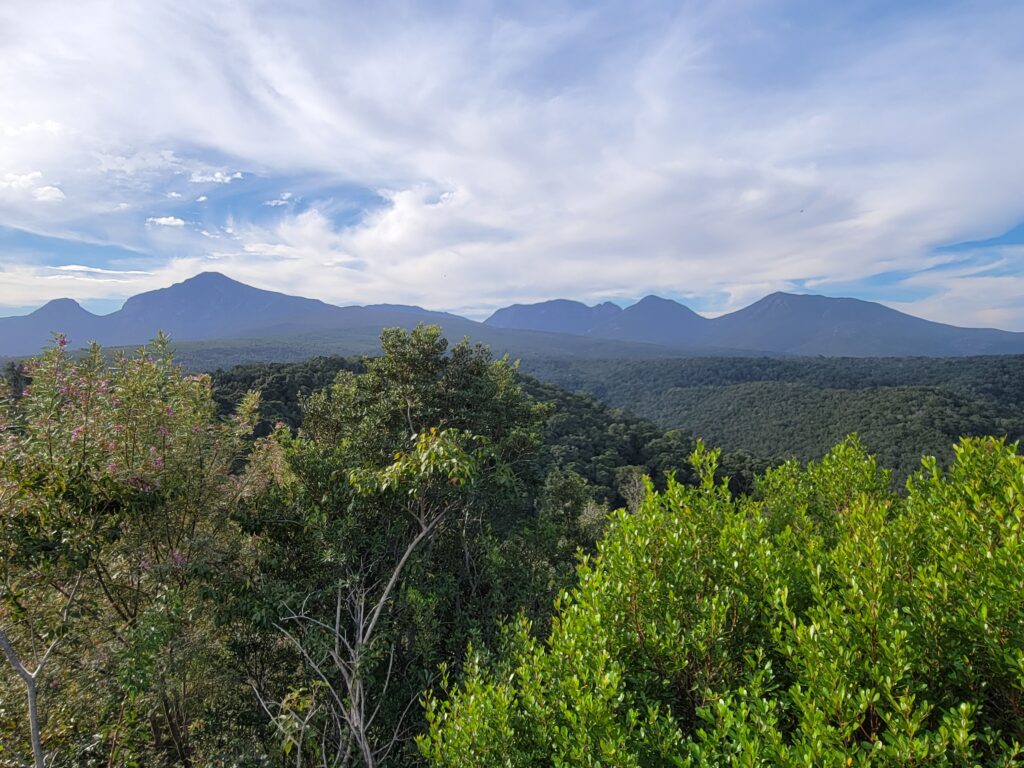
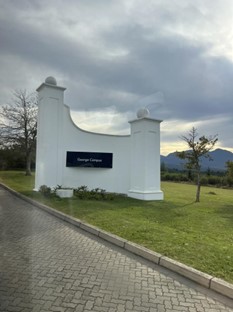
The day started with a welcome from Dr. Kaluke Mawila, George Campus Principal and CSHPE alumna. After the welcome, attendees visited the various tables around the room to learn about the resources and services available to students. One resource was the Transformation Office, which had information about Anti-Gender Based violence (Anti-GBV), a topic of palpable importance throughout the various campuses we visited. The information-fair style setup allowed us to converse with George Campus students, learn from each other’s experiences, and tour the campus.
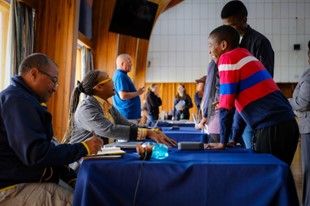
Most of the students we met had many questions about what student life is like in the US and what to do to pursue advanced degrees. Until the George Campus visit, we had not engaged with students directly, so talking to NMU George students in this informal setting made room for honest and refreshing conversations about our experiences navigating higher education institutions.
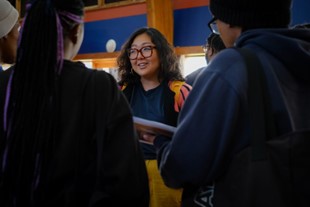
For the second part of the day, we participated in a series of facilitated panel discussions around the theme of Finding Common Ground on “What Are We Good For?”. Specifically, we addressed key topics important to higher education: student debt, transformation of higher education leadership, student life and development, and leading multi-campuses effectively. The panels were a conversation between leaders, students, and staff of Nelson Mandela University and the University of Michigan, who shared insights from their research and personal experiences. The main goal of these panel discussions was to engage in global discourse about what universities are good for.
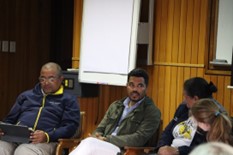
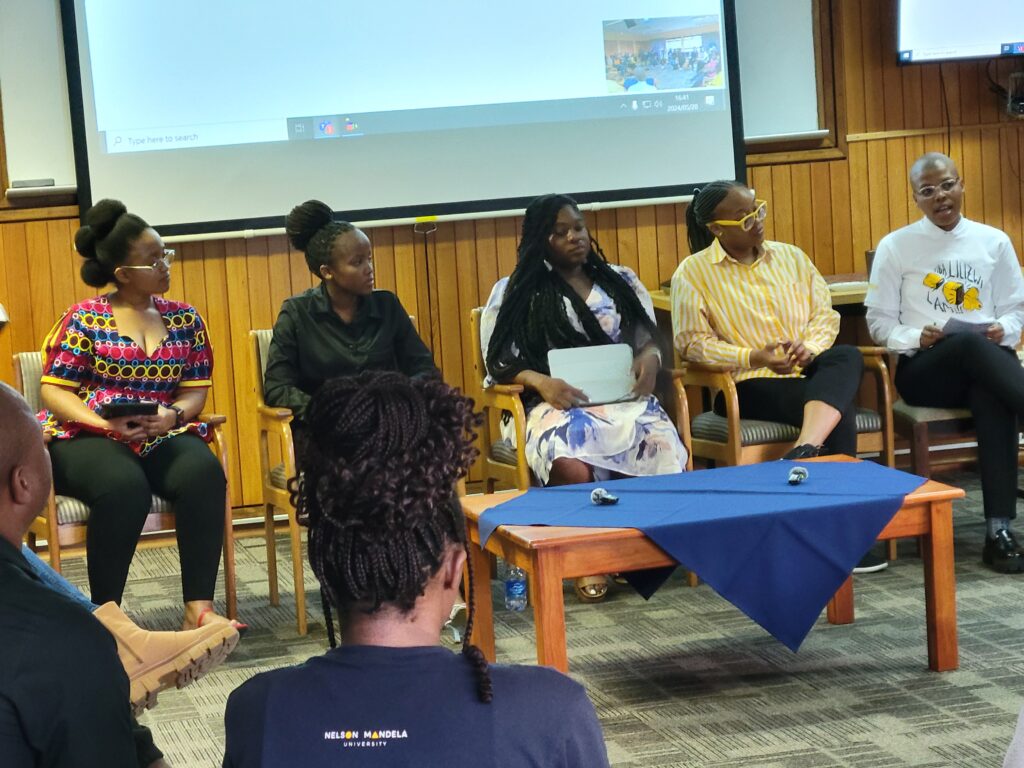
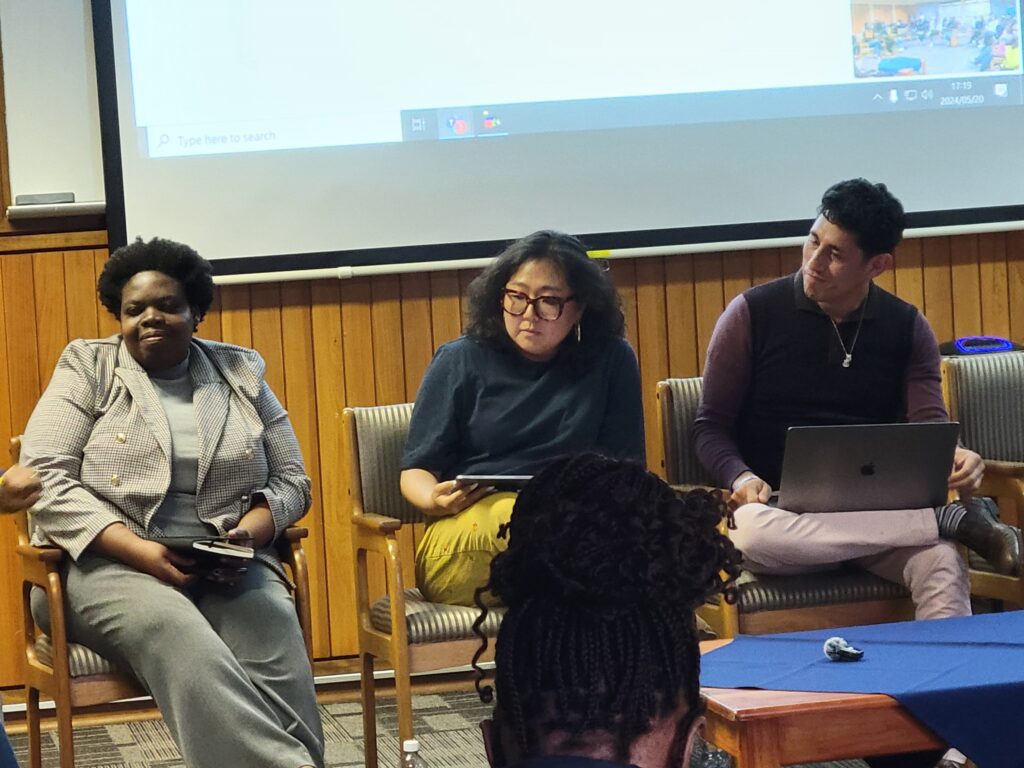
As the discussion between academics progressed and attendees had an opportunity to ask questions, we witnessed a beautiful showcase of activism. While we engaged in an intellectual exercise about the challenges of student debt, GBV, food insecurity, and what leaders should do for transformation, student attendees reminded us that they had been telling us about the problem for some time. By sharing their experiences and asking questions, they pushed the panelists to reflect on the guiding question for the discussion: What Are We Good For? As we reflected on how the panel progressed, that question became more complicated. Our panel on effective multi-campus governance was the last one, and though we had prepared extensively to speak on the topic, based on all the discussions prior, it felt misaligned. At the last second, we decided to lean into what the students were telling us and grapple with these questions with them instead. Really, what are we good for if students are telling us about their struggles and needs and those are treated as an academic intellectual exercise with no immediate solutions for their needs? What are we good for, and how can we do better? What is transformation? Towards what are we transforming?
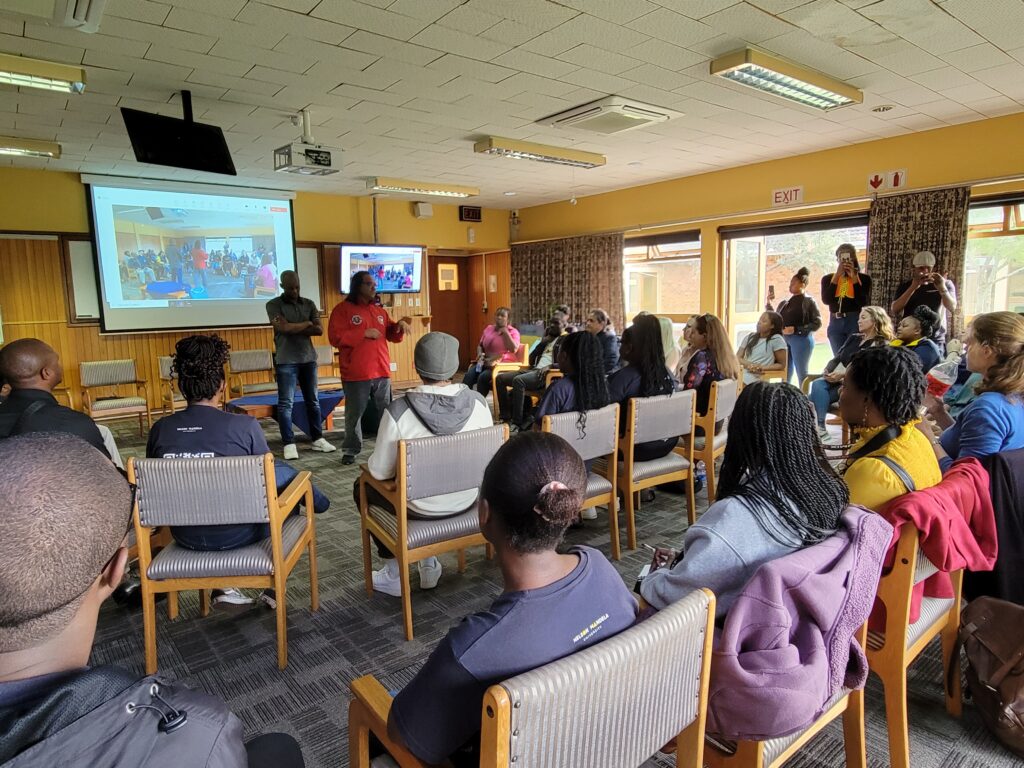
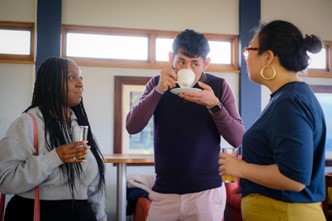
Both NMU and U-M are at the juncture of figuring out what transformation truly looks and feels like in higher education. Though continents apart, similar questions, tensions, and power dynamics seemed to shape how both institutions grapple with transformation processes. During the second panel, Transforming Leadership, the panelists discussed the necessity of taking risks for leaders striving to practice transformational leadership. As we witnessed students’ willingness to take risks and share with the administrators the realities of injustice experienced by their peers, we were reminded again that students are, and always have been, at the forefront of practicing transformational leadership.
by Raúl Gámez and Angie Kim (CSHPE doctoral candidates)
